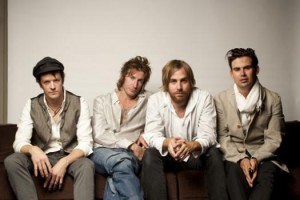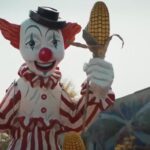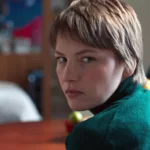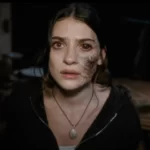The White Album Concert
Brisbane, 13 July 2014
By Simon Groth
Is the tribute performance of a classic album in its entirety already cliché? Even if it is, some albums remain a daunting proposition for the tribute, whether through a particular studio sound, epic scale, or complex musicianship that makes them tricky to reproduce. Then of course there’s the problem of meeting impossible expectations from an album’s rabid, but varied fan base.
Alright. Full disclosure.
I acquired my first copy of The White Album when I was about twelve. I don’t really know why, but something in that record clicked with me and I can safely say I subsequently listened to that sucker every single day for the next few years. Yes, the whole thing. These are thirty songs embedded deeply within my consciousness. I now have more copies of The White Album than might be considered rational. I’ve heard the bootlegs. And identifying the arcane differences between the mono and stereo mixes? Yeah, across that.
In some ways, this was a concert I was born to critique. And, frankly, it’s unreasonable fans like me who present a significant challenge in staging The White Album Concert.
When you’re tackling a cultural institution, how many liberties can you take? How do you strike a balance between respecting the source material without coming across as a hollow tribute? Do you bring your own sensibility to the music or do you just stick to the record?
It’s easy to become backed into a corner where you’re damned if you do and damned if you don’t.
But if the impressive 21-piece band performing the White Album Concert were intimidated by the Beatles’ masterpiece[1], they didn’t show it.
The singers—Chris Cheney from the Living End, singer and songwriter extraordinaire Josh Pyke, Grinspoon’s Phil Jamieson, and You Am I’s Tim Rodgers—receive the top billing but the other seventeen musicians provided the dense backdrop to one of the most diverse collection of songs to ever go umpteen times platinum.
Led by the impressive Rex Goh on guitar, occasional ukulele, and conductor’s baton, the band faithfully reproduced the sounds of the record, sometimes with an almost inhuman precision. The basic band was augmented by horn and string sections and when they locked into a song, barely a riff, fill, or trill sounded out of place.
Cheney’s primary role was raw rock and roll, which he filled in fine form for tracks like ‘Back in The USSR’ and ‘Birthday’, even channelling his inner Clapton for an extended and glorious take on the solo for ‘While My Guitar Gently Weeps’. Cheney seemed to be having the most fun of anyone on the stage and his guitar work was consistently outstanding throughout.
Tim Rodgers brought not only the necessary Lennon swagger for songs like, ‘Happiness is a Warm Gun’ and ‘Everybody’s Got Something To Hide Except Me and My Monkey’ (though not enough cowbell), but also a little menace, stalking the stage and keeping a beady eye on his fellow performers through ‘Piggies’. Between songs, Rodgers lightened the proceedings with actual stage banter, peppering his asides with obscure Beatles references for the audience members in the know, which I suspect was probably a sizable percentage of us.
Few voices in Australia are more suited to the delicate balance of songs like ‘Mother Nature’s Son’ and ‘Long, Long, Long’ than Josh Pyke’s. But it was on his simple solo performance of McCartney’s ‘Blackbird’ that Pyke truly rose to the occasion. It takes balls to stand on a stage and sing that song unaccompanied and the split-second moment of relief that crossed his face at the end suggested he knew it too.
But the real surprise performer was Phil Jamieson who took on a dizzying diversity of songs—from ‘Dear Prudence’ to ‘Don’t Pass Me By’ to ‘Honey Pie’ and plenty between—bringing the same conviction and sincerity to each.
It still strikes me as unusual to know a show’s playlist in advance, but it did serve to build anticipation for the most demanding song for the stage, the audio collage ‘Revolution 9’. In the hands of the band, the track’s tape loops and cut ups were transformed into something more musical—and just maybe more listenable—than the original, but retaining elements of its strange sound world enough to make it recognisable.
The Brisbane concert was the second of the new tour (the concert last toured in 2009) and occasional microphone glitches were a testament to the crew’s technical challenges in managing a constant rotation of singers. Handover between songs was mostly smooth though often strangely silent. A notable exception was Pyke’s ironic comment following Cheney’s ripping take on ‘Helter Skelter’:
‘I love coming on after Chris.’
So how does The White Album Concert fare in that impossible balance between sticking to the source and interpreting the songs for a live audience? I’m loathe to compare the performances too closely to the record, but it’s very hard not to when they are presented in this way.
It’s probably appropriate the balance erred on the side of reverence, but some of the most enjoyable moments came when both band and singer loosened up, when the guitarists let go with their own solos, and particularly when all the singers took to the stage and took the edge off the more saccharine numbers like ‘Ob-La-Di Ob-La-Da’ and ‘Good Night’.
Not a show full of surprises, but a solid and satisfying take on a difficult work with an outsize reputation. And more than enough to satisfy an unreasonable fan.




